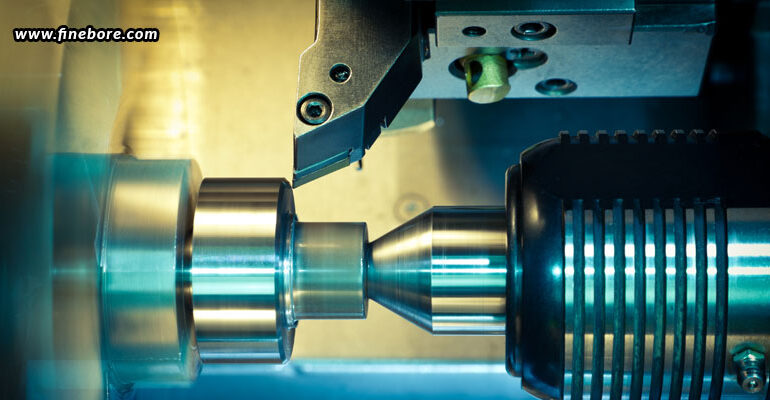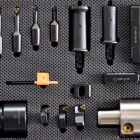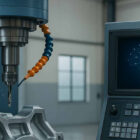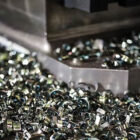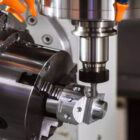In order to achieve high accuracy and quality in machining processes, precision boring tools are necessary. Optimizing the lifespan of these equipment is essential for maximizing return on investment (ROI) and preserving effective manufacturing processes, considering the substantial investment they represent. This blog examines the methods for prolonging the life of precision boring tools, such as regrinding techniques, tool coating choices, and tool management programmes. While regrinding techniques restore tool performance and postpone the need for replacement, tool coatings like TiN, TiCN, and TiAlN offer improved wear resistance and heat protection. By putting in place efficient tool management systems—which include inventory control and maintenance scheduling—you can make sure that equipment is utilized and maintained correctly, which will eventually increase production and cut down expenses.
Importance of extending the lifespan
Increasing the longevity of precision boring tools has a number of important advantages. First, by lowering the frequency of tool changes, which decreases total tooling costs, cost savings are achieved. Another benefit is increased production since longer-lasting tools require less downtime for maintenance and tool replacements. Production processes become more efficient as a result. Additionally, consistent quality is guaranteed since well-maintained equipment offer excellent surface finishes and dependable machining precision. Prolonging the life of a tool also helps to reduce its impact on the environment since it reduces waste and the environmental footprint of both tool manufacture and disposal. All in all, these advantages support a more economical and environmentally friendly machining process.
Tool coating options
Precision boring tools can last longer, thanks in large part to tool coatings. Numerous coatings have different advantages, such as improved heat resistance, wear resistance, and hardness. Typical coating choices include the following:
- Titanium Nitride (TiN): This coating lowers friction and lengthens tool life by offering a robust, wear-resistant surface. TiN may be used with a variety of materials and applications.
- Titanium Carbonitride (TiCN): Compared to TiN, TiCN coatings have greater hardness and superior wear resistance. They are perfect for high-speed cutting operations for machining abrasive materials.
- Titanium Aluminium Nitride (TiAlN): TiAlN coatings offer superior oxidation stability and heat resistance, making them ideal for high-temperature applications. They work especially well in high-speed and dry machining applications.
- Diamond-Like Carbon (DLC): DLC coatings are excellent for machining non-ferrous metals and composite materials because of their exceptional hardness and minimal friction.
- Polycrystalline Diamond (PCD): PCD coatings are perfect for machining abrasive materials including ceramics, hard metals, and composites because of their extreme hardness and wear resistance.
Regrinding practices
One economical method of extending the life of precision boring tools is regrinding. By using the right regrinding techniques, you may prolong the life of the tool and improve its cutting effectiveness. Important factors for successful regrinding are as follows:
- Regular inspection: To spot wear or damage early on, routine inspections are a must. Before they get too worn out, tools should be reground since excessive wear might reduce the effectiveness of regrinding.
- Professional services: For accurate and reliable outcomes, use professional regrinding services. Professional services possess the necessary tools and knowledge to return tools to their original specifications.
- Appropriate handling: Use caution while handling tools to avoid breaking them during the regrinding process. To preserve the integrity of the tool, storage and transportation must be done properly.
- Keeping records: Keep thorough records of all regrinding cycles, including how many times each tool has been reground and how well it functions following a regrind. This aids in determining tool life and creating maintenance programmes.
Tool management systems
Optimizing the longevity of precision boring tools necessitates the use of a proficient tool management system. A thorough tool management system consists of:
- Management of inventory: Maintain thorough records of the tools you own, including their specifications, usage history, and regrinding cycles. This helps monitor tool performance over time and guarantees that the appropriate tools are accessible when needed.
- Tool tracking: Track the location and use of tools by using tracking technologies like barcodes or RFID tags. This makes it easier to determine which tools need to be replaced or maintained.
- Maintenance scheduling: Considering tool usage and wear trends, create a proactive maintenance programme. Tool life may be considerably increased by doing routine maintenance, which includes cleaning, inspecting, and regrinding.
- Education and training: Provide machine operators with instruction on safe tool handling, usage, and maintenance methods. Because knowledgeable users are less likely to abuse their instruments, there is less chance of wear and injury.
- Data analysis: Analyze tool performance data to find patterns and areas that need improvement. To maximize tool utilization and maintenance schedules, this might involve keeping an eye on cutting forces, wear rates, and machining conditions.
Strategies for maximizing tool ROI
The following tactics, in addition to the ones already stated, should be used to maximize the return on investment (ROI) of precision boring tools:
- Ideal machining conditions: For every material and tool, use the best cutting speeds, feeds, and depths of cut. Inaccurate specifications can shorten the life of a tool by causing unnecessary wear.
- Coolant management: In order to dissipate heat and minimize tool wear, the coolant must be applied properly. Make sure the coolant is administered to the cutting zone accurately and used in the right type and concentration.
- Toolholder upkeep: Make sure your toolholders are clean and in good working order. Premature tool wear might result from misalignment and vibration brought on by worn or defective toolholders.
- Vibration control: To reduce vibration when machining, make sure the machine is stable, use balanced tooling, and optimize the cutting conditions. Vibration can negatively impact machining quality and drastically shorten tool life.
- Tool path optimization: To cut down on pointless tool motions and increase cutting efficiency, optimize tool pathways. Utilizing sophisticated CNC programming methods may reduce tool wear and increase tool longevity.
To sustain effective, high-quality machining processes and maximize return on investment, it is imperative to optimize the lifespan of precision boring tools. Through the use of superior coatings, efficient regrinding techniques, and all-inclusive tool management systems, businesses may considerably prolong the life of their tools and lower their total tooling expenses. Manufacturers may get cost-effective precision boring operations and sustain their competitive advantage in the business by adhering to these methods and best practices. FineTech Toolings, known for their quality and innovation, is a great option if you’re looking for the best precision boring tools in Bangalore. So, get the best boring tools and stick to the above strategies to have a durable and long-lasting operation.

